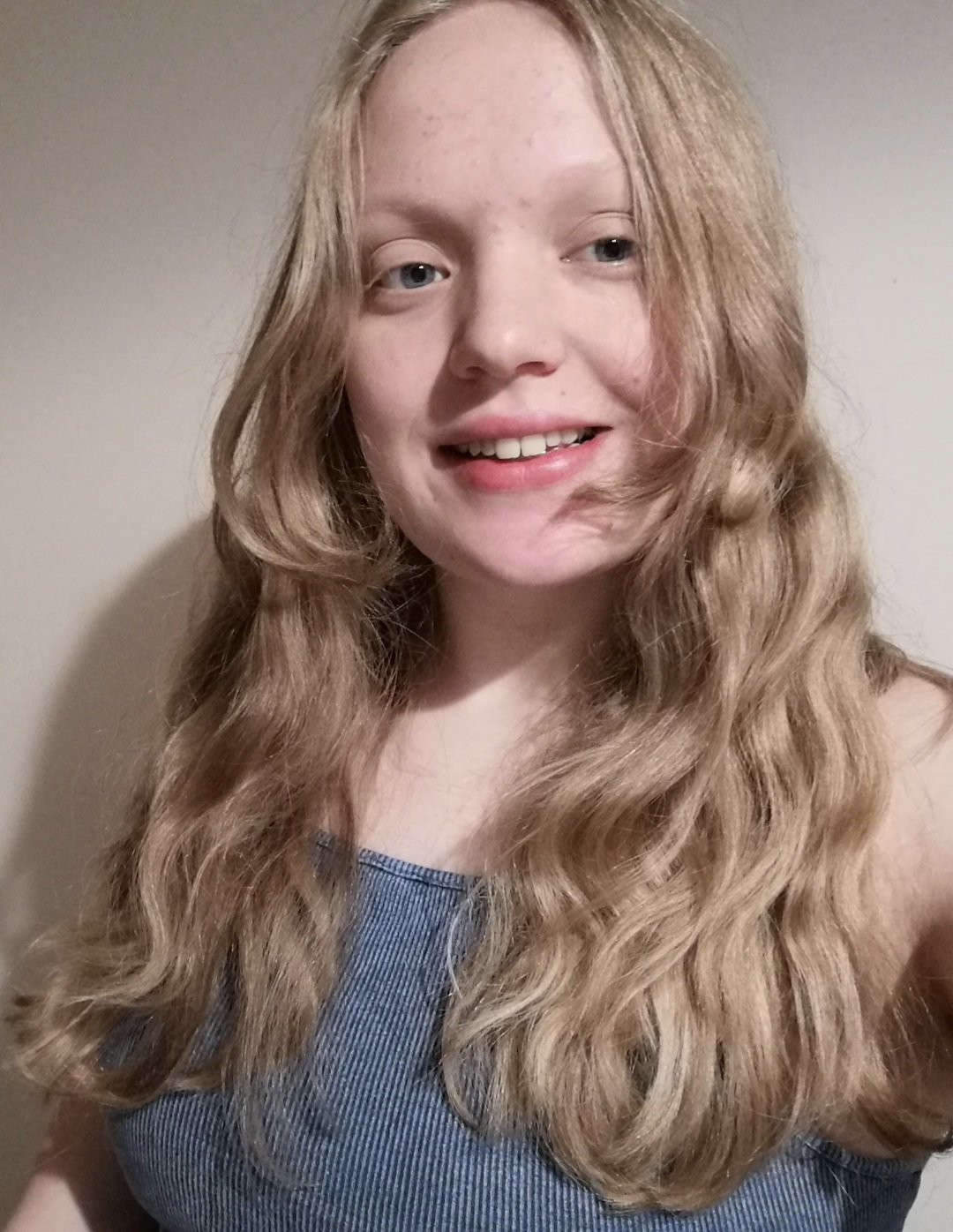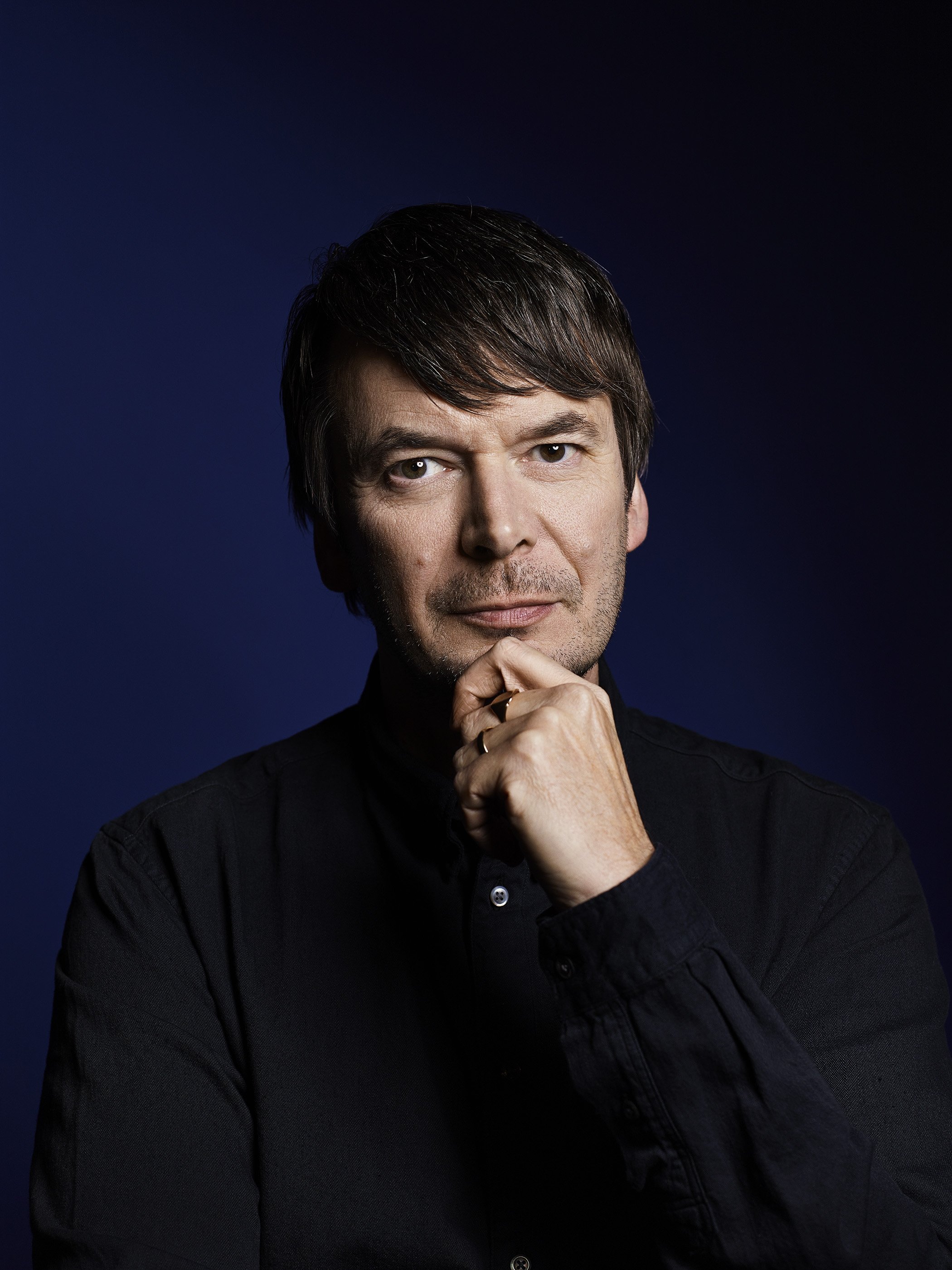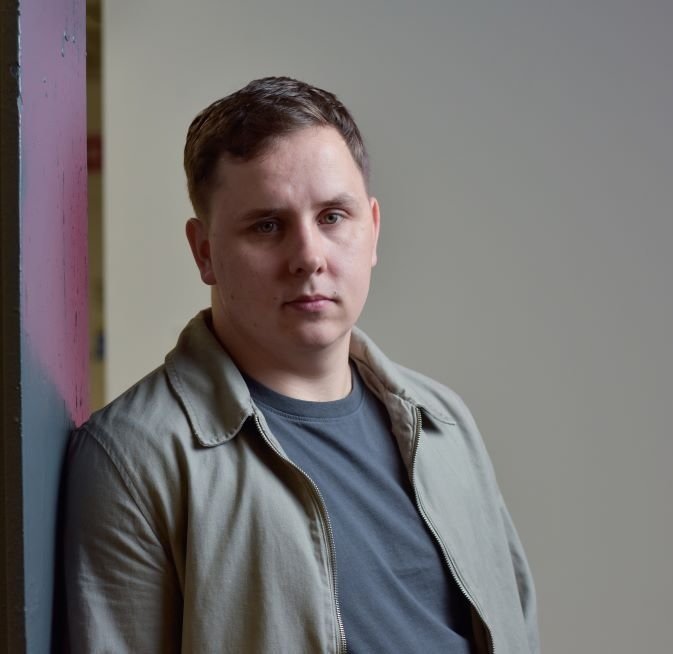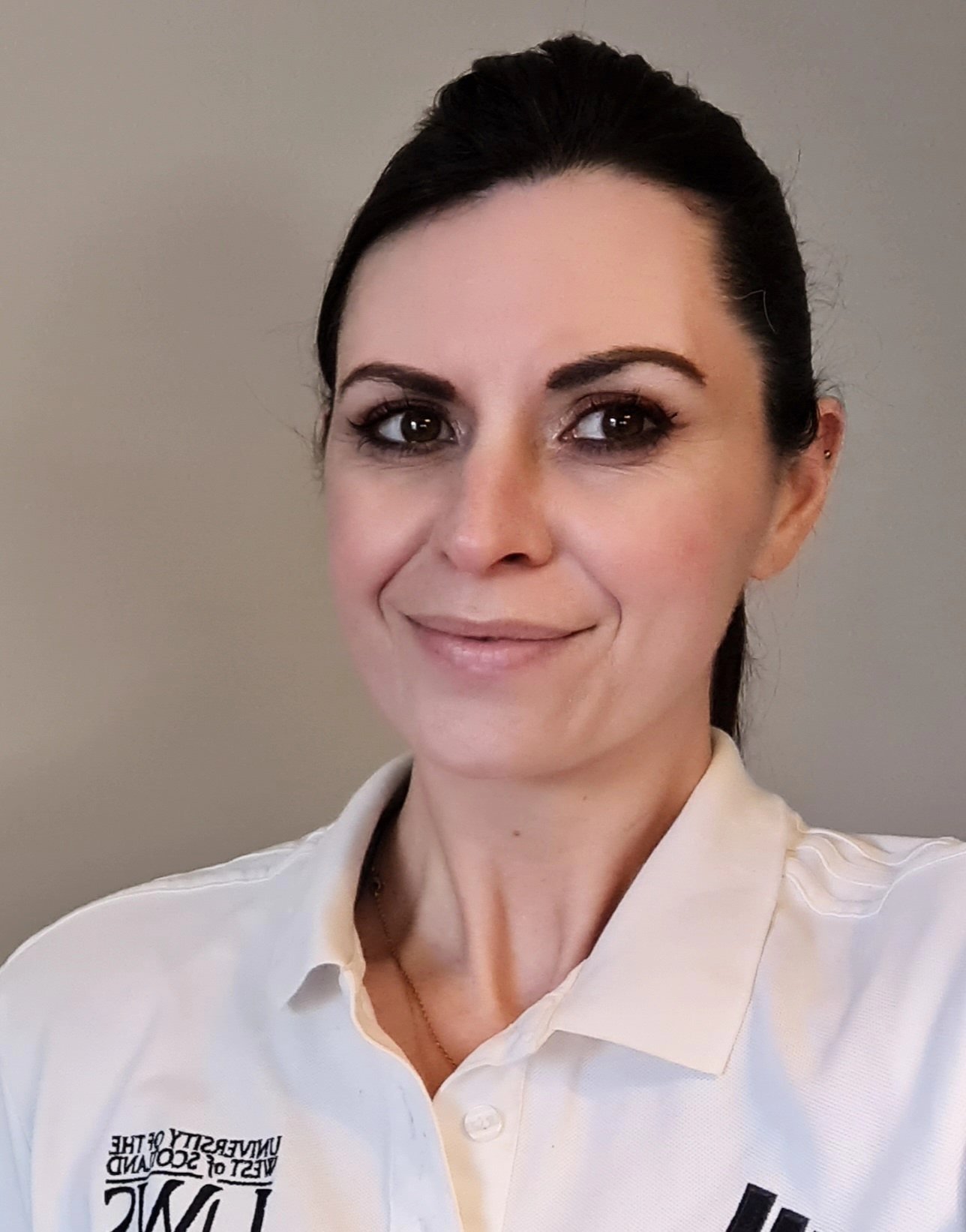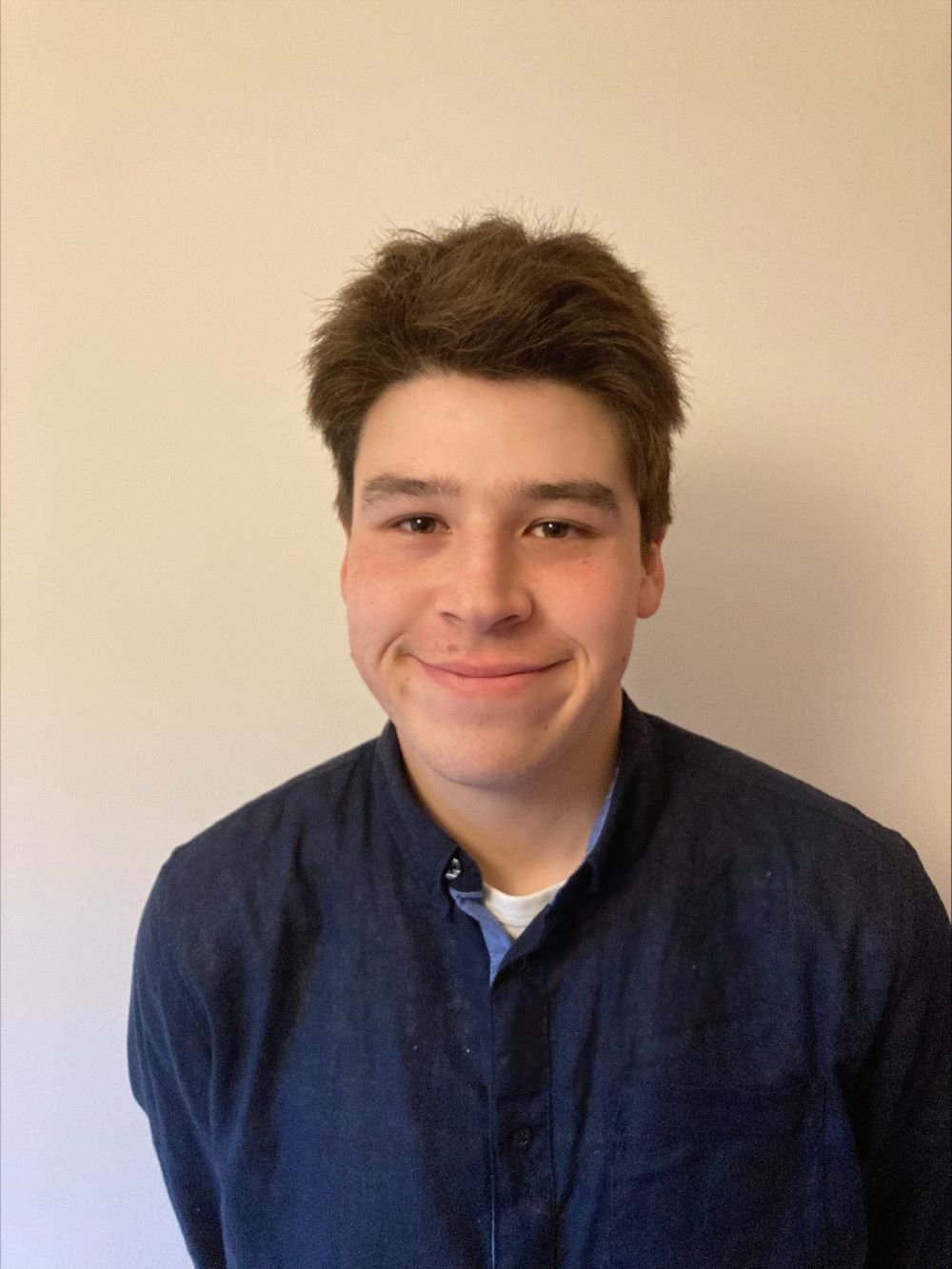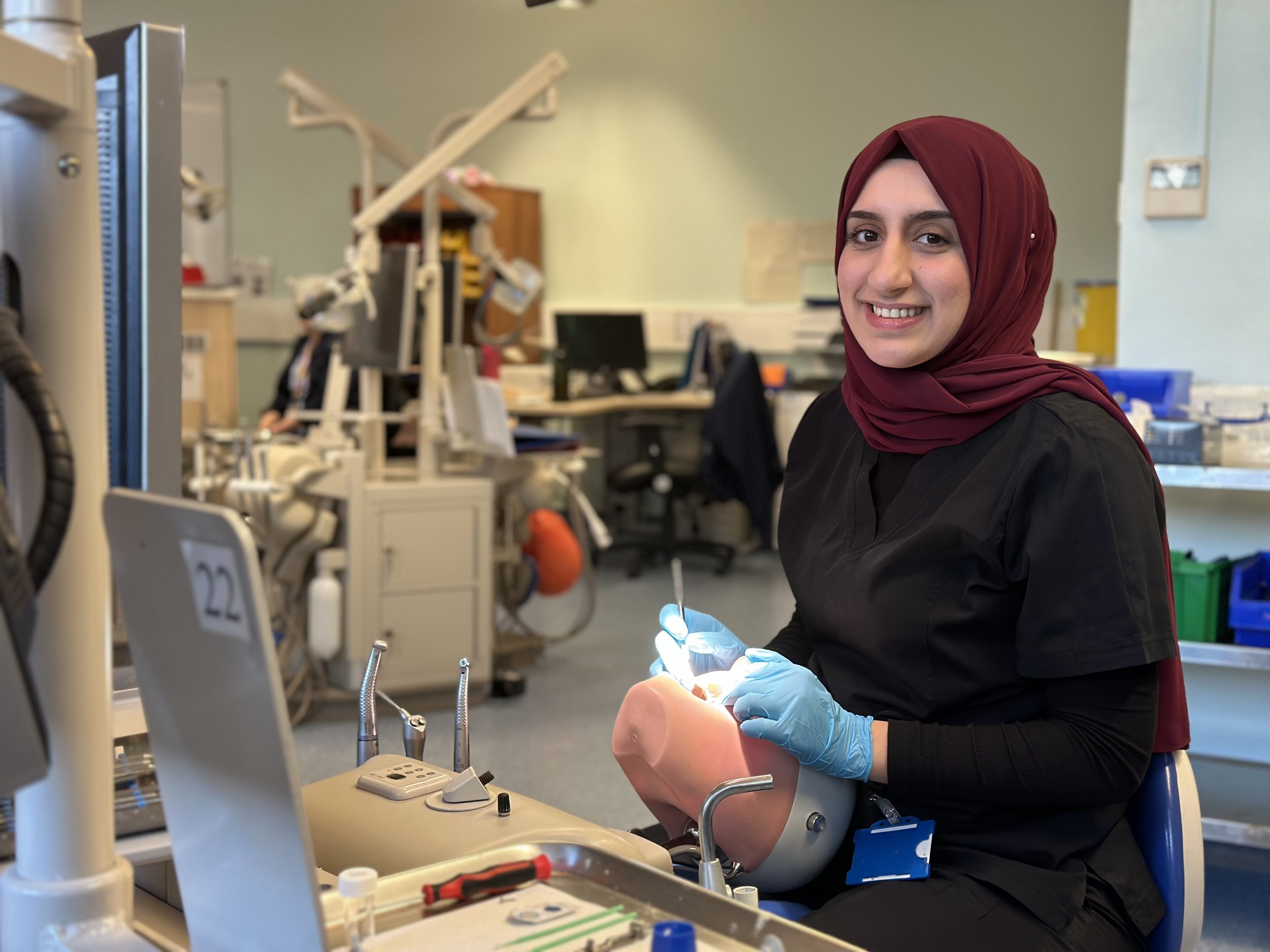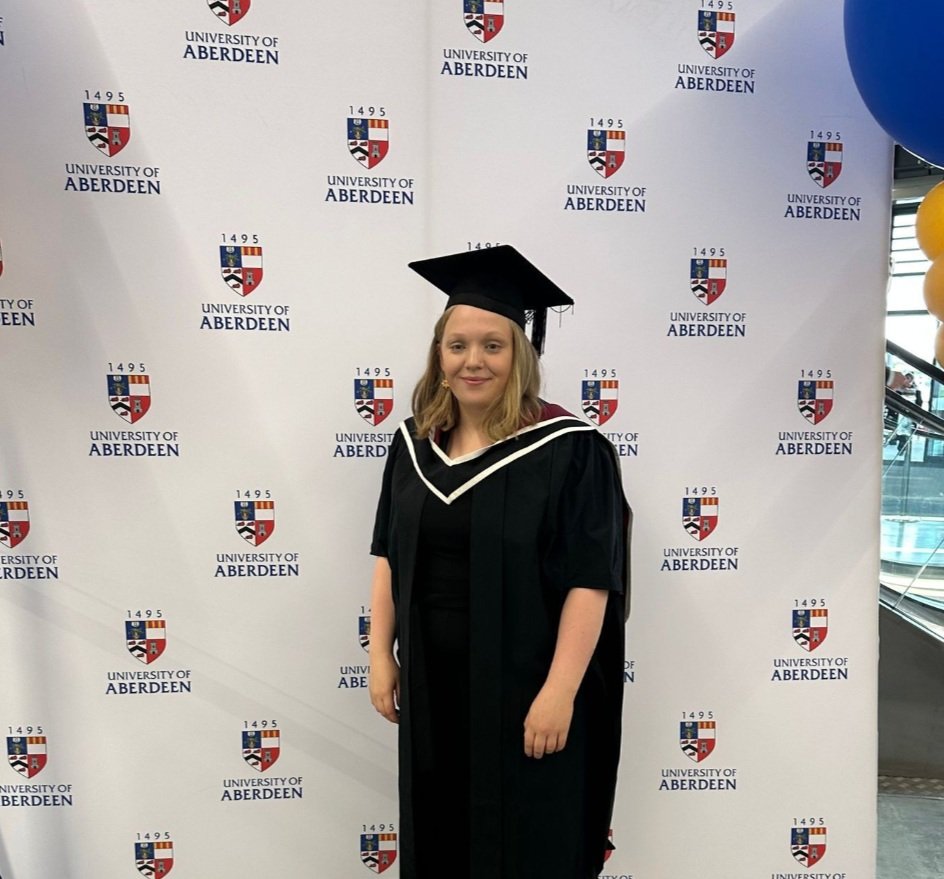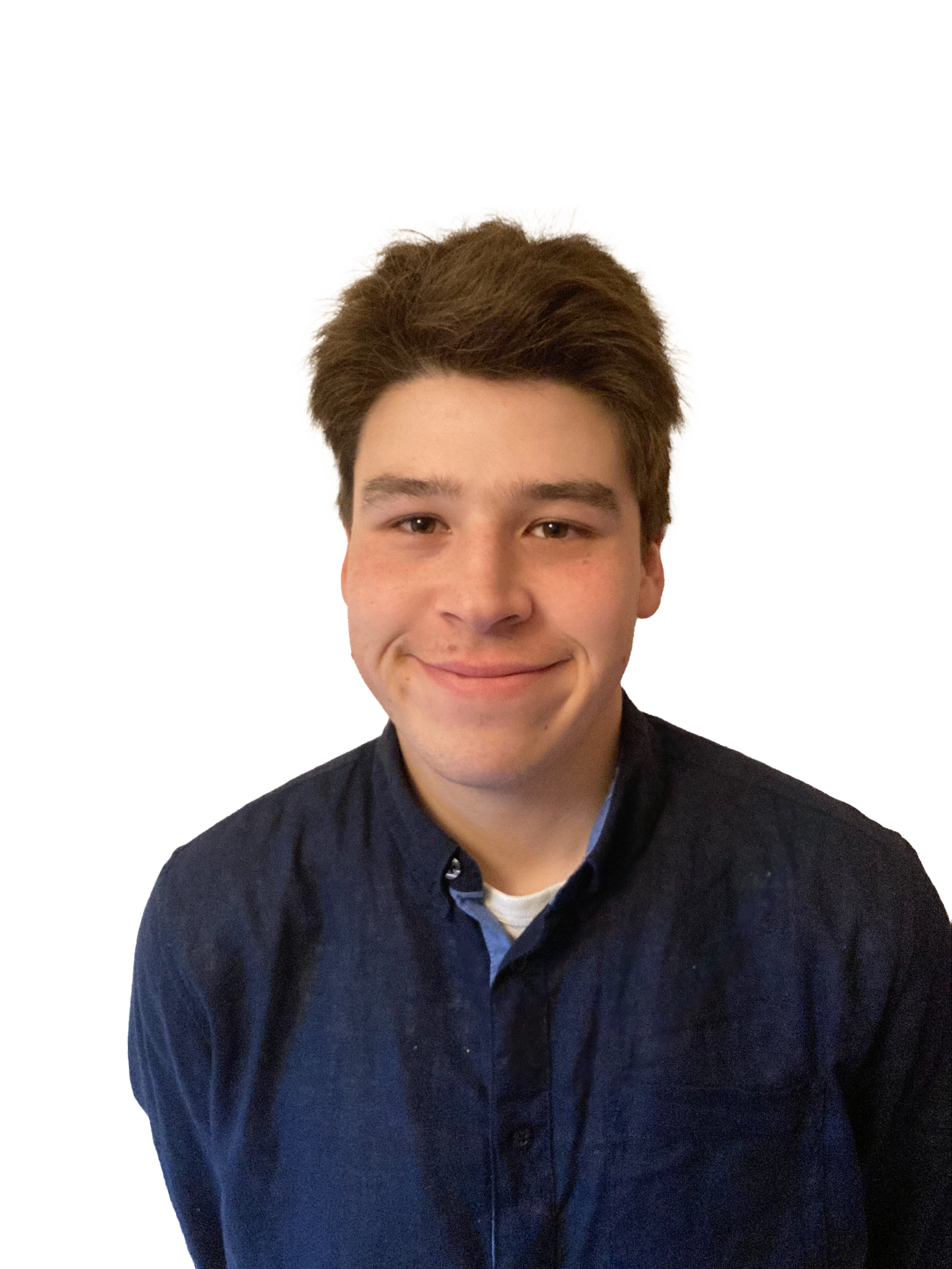Start young
on self-belief
LESSONS
Self-belief, and the struggle to have it, was a strong theme expressed by our 40 Faces. Their collective ambition and determination is hugely inspiring but there is a persistent and damaging perception within society that some faces fit at university, and others don’t.
It takes a lot for individuals to overcome that.
That perception is being torn down by universities, with both action and words.
universities help
to build self-belief
Universities have close partnerships between schools and colleges. Several people mentioned the value of seeing relatable role models at university and being part of university outreach activities in schools. Others said how important university staff had been in their route into university.
Erraid believes we need to do more to support young people and teenagers to understand all the benefits of university and this has to start with outreach into schools. For Mia, mentorship programmes and outreach initiatives really make a difference.
University advice and support, from the pre-application stage, through to entry can make all the difference, practically and emotionally, to building a sense of belonging as can university bridging programmes and the extra support shown at key transition points. Jeffrey credits the summer school he did as key to building familiarity with the university and feeling comfortable.
It’s clear from the words used when someone feels they have the full belief and support from their university behind them. Shemaa describes it as the university holding her hand and William talks of the patience and understanding he received. There are so many more stories of this experienced from all 40 of our “faces”.
Universities have the ability to bolster an individual’s self-belief because they take time to get to know the person. That is hugely powerful.
Meet them
University of Dundee
University of Aberdeen
Edinburgh Napier University
Queen Margaret University Edinburgh
University of Edinburgh
University of Dundee
University of the Highlands and Islands
Glasgow Caledonian University
University of the West of Scotland
Glasgow School of Art
Scotland’s Rural College
Jeffrey Addai-Peprah
Medicine
University of Dundee
Jeffrey’s school introduced him to the REACH access programme into medicine, as run by the University of Dundee.
— What was the most supportive thing the university did for you?
I was fortunate to have received an offer to do a 4-week summer school programme before attending university in September. This allowed me to prepare for the course ahead, helping ease the daunting transition from high school to university. I was quickly exposed to the realities of being a student, including the challenges I could encounter as a first year. Additionally, this opportunity meant I could meet and make friends with individuals from a variety of diverse backgrounds, which granted me a warm essence of familiarity when I began studying.
— What advice would you give your younger self?
The advice I would give to my younger self is “Never limit yourself!”. I’d like to believe my younger self would be proud of all the opportunities I’d been given, and remained resilient, especially during the tougher periods.
— In your experience, what more needs to be done to reach Scotland’s 2030 target to equalise access to university?
I believe more can be done to promote the university to those from more economically disadvantaged backgrounds through raising awareness that attending university is an achievable goal, if they wish to pursue it. My dream of studying medicine became a reality when I became a member of Reach Tayside, which offered continual development programs and workshop opportunities, creating an extensive support network. It is my firm belief that more programmes like this focusing on a variety of university courses will target a much broader range of individuals over the next six years, diminishing the belief that university is a far-fetched idea for those from disadvantaged backgrounds.
“It is my firm belief that more programmes like this will target a much broader range of individuals… diminishing the belief that university is a far-fetched idea for those from disadvantaged backgrounds.”
Sir Ian Rankin
Writer and philanthropist
University of Edinburgh
— What was your motivation to go to university?
I was the first member of my family to go into higher education. I was a voracious reader and wanted to know more about literature. My parents weren't sure about my choice of English Literature as a subject - to their minds, working class kids went to university to get a 'trade skill' such as accountancy or law. But they allowed me to make my own choices and go my own way.
— What advice would you give your younger self or what do you think your younger self would think about where you are now?
I think my younger self would be relieved that after all the false starts, wrong turns and rejection letters his stubbornness paid off! University made me more confident and strengthened my critical and creative abilities - but I'm not sure I really realised that at the time.
Sir Ian was the first in his family to go to university.
— In your experience, what more needs to be done to reach Scotland’s 2030 target to equalise access to university?
Things have changed so much since I was an undergraduate all those decades ago. I was given a full grant due to economic circumstances and there were plenty of temporary jobs available during term breaks. I think funding has become more precarious - my parents would have been horrified at the idea of me leaving education with a huge debt hanging over me. Being working class and studying English Literature in 1978, I didn't feel like an anomaly - I wonder if the same would be true today. My comprehensive school in Cowdenbeath hadn't really prepared me for the world of academia - I felt on arrival to university that I'd been dropped in at the deep end. I would have welcomed a bit more of an introduction to the challenges ahead of me.
"University made me more confident and strengthened my critical and creative abilities.”
Shemaa Abdullah
Dentistry
University of Dundee
Shemaa is seeking asylum in Scotland from Syria
— Why did you want to go to university?
Going to university is something that I always had in mind from a very young age. My parents always encouraged me and reminded me of the importance of learning.
— What was the most helpful the university did for you?
I arrived to the UK in 2017, right before my final exam at high school back in Syria, at the age of 17. My hopes of getting into university were shattered, I was in a difficult situation where I had not completed the qualifications back home, starting Highers in a new education system and applying to university after 6 months of my arrival to the UK. This was challenging as I had no understanding of the university application systems and requirements.
That is when I got in touch with REACH, a widening access programme, provided by the university. They held my hand along the way, they helped me with understanding the system, volunteering opportunities, personal statements, preparing for the UKCAT and work experience. Whenever I felt lost REACH were the ones I got in touch with, a question big or small they would always have the answer. I think if it was not for the help of REACH I would have not been in the position I am at today and I am very grateful that the university had this service to help.
“I managed to survive a war, a pandemic, and all the other challenges that happened along the way, but continued to persevere.”
— In your experience, what more needs to be done to reach Scotland’s 2030 target to equalise access to university?
I think more knowledge about widening access should be introduced. Sessions, done through school visits or home visits to specific students that the schools recommend, to understand the pathway to higher education and the steps young people need to take to enter university courses. These sessions could also be targeted towards their parents.
I think more chances should be given to people that have not had the same advantages as others, or those who had to take several years off due to personal challenges and not met the qualifications required when they were at school. This could be in the form of providing courses to complete these modules for mature students that left school earlier in life but decided to make a change.
Interviews to listen to the life experiences and conditions that these individuals have been through that could be similar to skills that universities believe are gained through teaching.
“Whenever I felt lost REACH were the ones I got in touch with… questions big or small, they would always have the answer...”
“More chances should be given to people that have not had the same advantages as others.”
William Torrie
vP Legal engagement
Queen Margaret University, Edinburgh
— In your experience, what more needs to be done to reach Scotland’s 2030 target to equalise access to university?
It’s an ambitious target and one I don’t think can be achieved alone. In my experience, partnerships make for better campaigns because you can leverage each other’s reach and experience.
Partnerships should showcase a variety of learning pathways including, full-time, part-time, apprenticeships, and online learning. In doing so, universities can demonstrate that neither route is superior to the other; variety is the spice of life, and the education system should aspire to reflect that, giving would-be-applicants more information towards knowing what they can achieve.
William is now on an accelerated career path as VP of Legal Engagement at Barclays, which he attributes to the skills and confidence he developed whilst studying at QMU.
“Lean into people and be sure to lift others up along the way.”
— What was the most supportive thing the university did for you?
I had a false start elsewhere; dropping out and returning to education a year later - this time at Queen Margaret. I had another disastrous first year, but with support from the faculty under strict conditions, I was able to continue to second year.
Without the faculty’s patience and understanding, I wouldn’t have developed the tools I needed to succeed in my education and take charge of my future.
— What advice would you give your younger self?
My advice is to be open to change and new experiences but be prepared for a roller-coaster that can potentially take you off course. There will be times when you think all is lost and that there is no way out - but there is. Don’t be ashamed of failure, you can bounce back, and you’ll be all the better because of it.
William went to university from a low participation area, as measured by the Scottish Index of Multiple Deprivation.
“It’s an ambitious target and one I don’t think can be achieved alone.”
William Torrie
Mia Burleigh
Academic and lecturer
University of the West Scotland
— What was the most supportive thing the university did for you?
The financial support I got was so important in helping me succeed. I received money via the hardship fund which I did not have to worry about paying back. This additional money was critical to allow me to travel to campus and pay for general life expenses. My lecturers also took time to mentor me and provided opportunities to be involved in research projects. These experiences played a pivotal role in shaping my career trajectory by enhancing my CV and ultimately positioning me for future success.
— What advice would you give your younger self or what do you think your younger self would think about where you are now?
If I could offer advice to me as a young woman, I would emphasise the importance of self-belief and resilience in the face of uncertainty. Despite initial apprehensions about my academic ability and having to navigate some difficult personal circumstances, I surpassed my expectations, finding fulfilment in making a meaningful impact on both students and society through my roles in teaching and research.
Mia left school at 16 with no qualifications and returned to education, via college, a decade later.
— In your experience, what more needs to be done to reach Scotland’s 2030 target to equalise access to university?
Concerted efforts must be made to address systemic barriers and provide tailored support to economically disadvantaged communities if Scotland's ambitious targets for equalised access to university by 2030 are to be realised. This includes implementing mentorship programs, addressing unconscious bias, enhancing outreach initiatives, and offering flexible learning options to ensure equitable opportunities for all aspiring students. These things really make a difference in whether students succeed and thrive in higher education.
Mia moved from college, directly into the third year of her degree at the University of the West of Scotland. There, she went on to achieve First Class Honors and her PhD at the University before joining their academic staff.
"I would emphasise the importance of self-belief and resilience.”
Erraid davies
medicine
University of Aberdeen
Erraid was supported into university by aberdeen’s Gateway2Medicine bridging programme.
— What was the most helpful thing the university did for you?
I think the university has been incredibly supportive of me throughout my almost 7 years at the university. To begin with, I was accepted into the Gateway2Medicine course and was supported throughout the entire year not just academically but socially, personally, and financially was then accepted into Medicine and again felt supported, I think partly due to the connections I had made during Gateway2Medicine but also particularly through the Regent Scheme.
I also received an entrance scholarship throughout my degree, which helped me massively financially. I have also been supported with disability provisions due to my dyslexia and a childhood hip problem- without which I would not have made it through exams, assignments and placements.
— In your experience, what more needs to be done to reach Scotland’s 2030 target to equalise access to university?
I believe we need to do more to support young people and teenagers to understand all the benefits of university, and this has to start in schools with outreach, especially in areas with traditionally less university attendance by locals from that area who have attended university or other higher education.
I do think that Scotland does higher education very well with free tuition, young persons bursary and even the loan system. Financially, there are many options to facilitate access to higher education however, I am well aware that some cities are much cheaper to live in than others.
“I think my younger self would be really proud of where I am, how I'm 6 months away from being a junior doctor, and that I still love what I'm doing.”
“there were times during university when I wasn't sure I was good enough for medicine- I found exams really difficult and definitely have not sailed through easily.”
Erraid’s journey
Erraid went to school in Shetland and took part in the Gateway2Medicine bridging programme at the University of Aberdeen after S5. As well as living with dyslexia, a family illness during her senior phase affected her attainment and she was concerned she wasn’t going to get the grades she needed for the conventional route into medicine. She also benefited from an entrance scholarship and support from the University’s Regent Scheme, which pairs students of medicine, medical science or nutrition with a senior university or NHS staff, with clinical experience, for regular support and guidance on any problems the student may encounter. Erraid graduates in June this year and will start work as a junior doctor.
“The university has been incredibly supportive of me.”
niyah clark
Widening Participation intern
Edinburgh Napier University
— Why did you want to go to university?
Initially during high school I didn’t think university was an option for me. Once I knew my options, and with encouragement from Pupil Support Officers, I decided to apply to university to do Business Management. I was the first in my family to go university so making that decision was difficult as I didn’t have much input from my parents.
— In your experience, what more needs to be done to reach Scotland’s 2030 target to equalise access to university?
I believe community outreach work will assist this target. I think there is a large number of school leavers, who were ambitious to leave school and get a job, that don’t know or weren’t aware of alternative routes into university such as a SWAP or Articulation. There are groups of people who are ‘missing’ from the traditional routes into higher education due to barriers they aren’t aware of and the more information available to them could really allow people to follow their dreams.
Niyah was the first in her family to go to university.
Additional funding may also be an incentive, the cost of living crisis is affecting many young people in economically disadvantaged backgrounds, and they are choosing to work rather than study. Some people don’t have the same advantages as others and barriers being reduced could really help reach the Scotland 2030 target.
— In ten years’ time what part of your university experience do you think will be most useful to you?
Getting a degree will open doors for you, especially if you are unsure what to do in terms of a long-term career after school it gives you time to figure that out and gain valuable skills along the way. I can always use my degree for future jobs, and potentially progress onto a Master’s degree.
"There are groups of people who are ‘missing’ from the traditional routes into higher education… more information could really allow people to follow their dreams.”
kenny murray
Deputy Chief Executive
Glasgow Caledonian University
Brought up in an SIMD20 area, Kenny was the first in his family to attend university and has lived experience of the care system.
— Why did you want to go to university?
My Mum told me from when I was young that I could achieve anything I wanted in life, as long as I worked hard and believed in myself. Ultimately growing up in Easterhouse, I experienced a lot of poverty of opportunity, and I felt like university was the thing that would open that door up.
— What advice would you give your younger self?
I'd tell my younger self to open my mind to think about what fulfilment in life really is. The opportunities my career has created for me to travel, meet others, learn about different subjects, cultures and people are worth far more than what I was looking at as an impoverished young man - the earning potential. That's all great, but once you're able to pay your bills look at what the world has to offer.
— In your experience, what more needs to be done to reach Scotland’s 2030 target to equalise access to university?
I believe that we need to do more to speak to young people in schools across the more deprived areas of Scotland to ensure that they understand the value of university, not just as a way to build a career but as a gateway to a life beyond what they currently know is possible. You don't know what you don't know and too many people discount themselves out of worry, fear, or lack of self-esteem. University is challenging, but with the right support it's a surmountable challenge.
jamie cooper
Environmental Management
Scotland’s Rural College
Jamie has dyslexia and studies for his BSc on a part-time basis to help him balance the practical and theoretical elements of his course.
Lisa Ryder
Psychology
University of the Highlands and Islands
Lisa balances her studies with work and family commitments, choosing UHI for their flexibility and virtual learning.
Boby Joseph
Fine Art Practice
Glasgow School of Art
Mature student, Boby, followed his dream to study Fine Art, initially through a HNC at Glasgow Clyde College, gaining direct access to second year at GSA in 2020.


